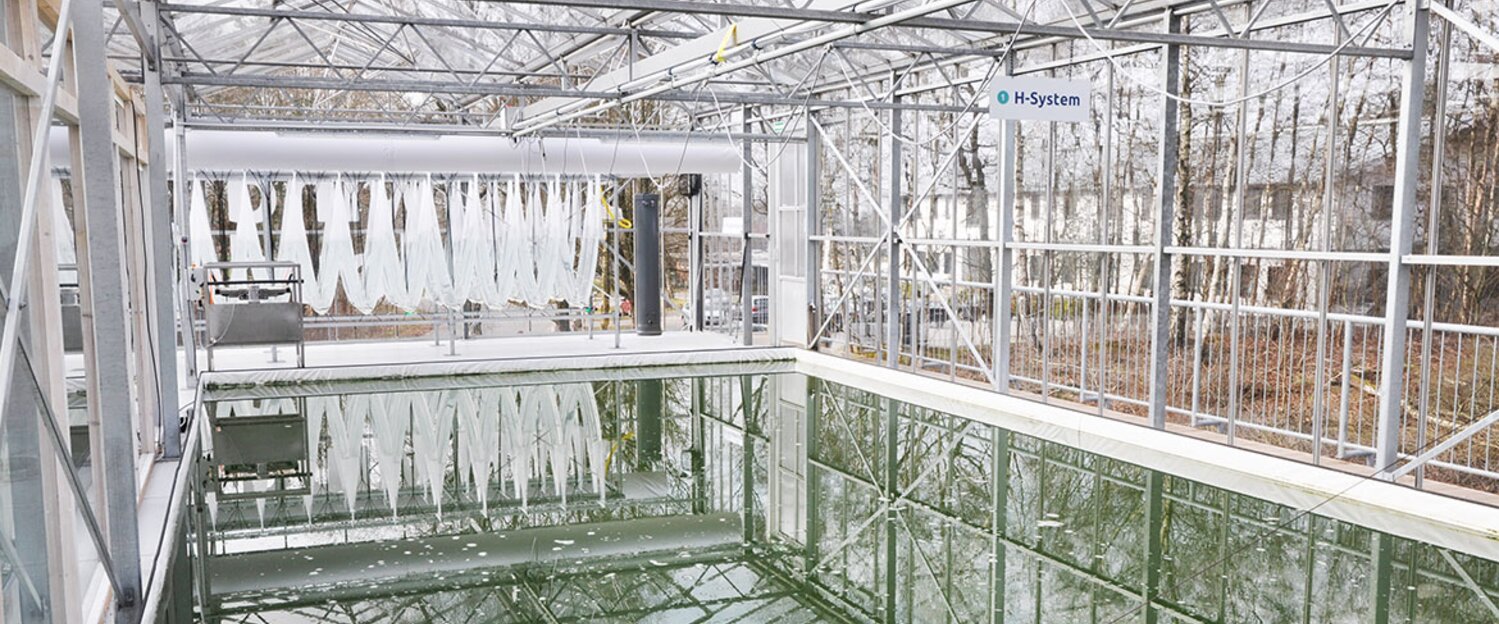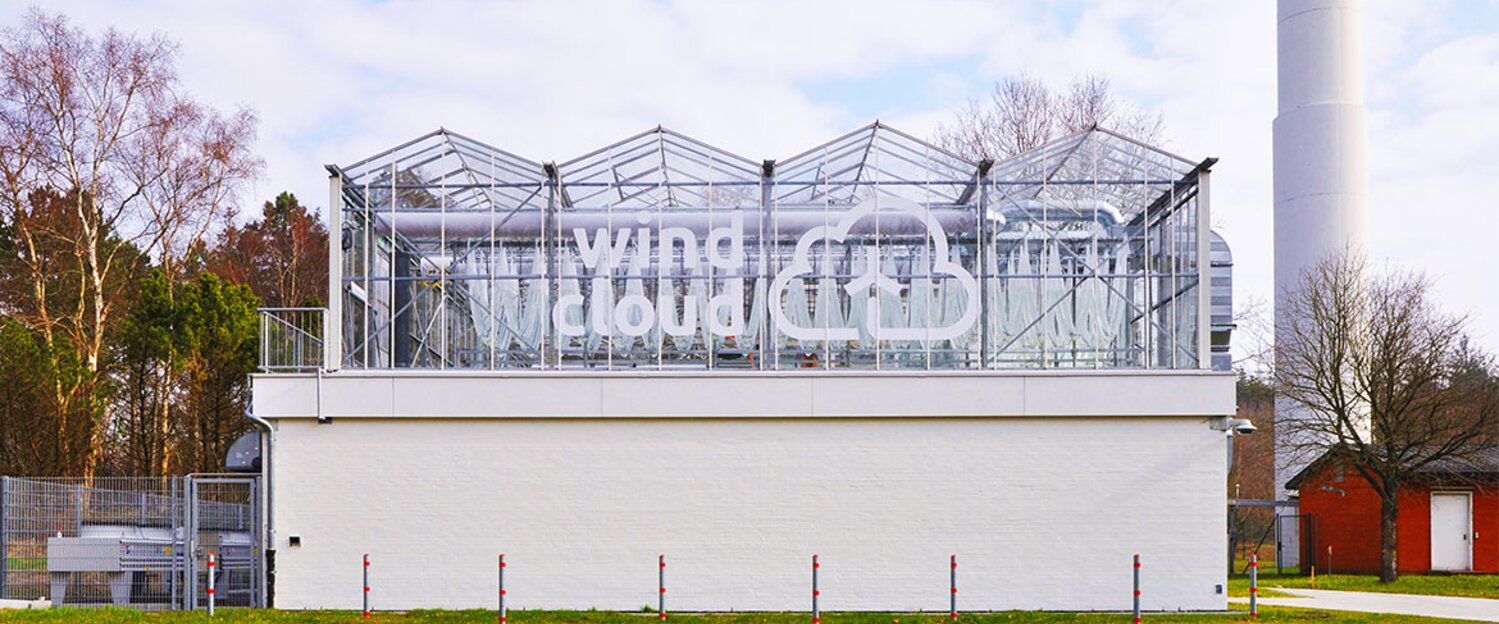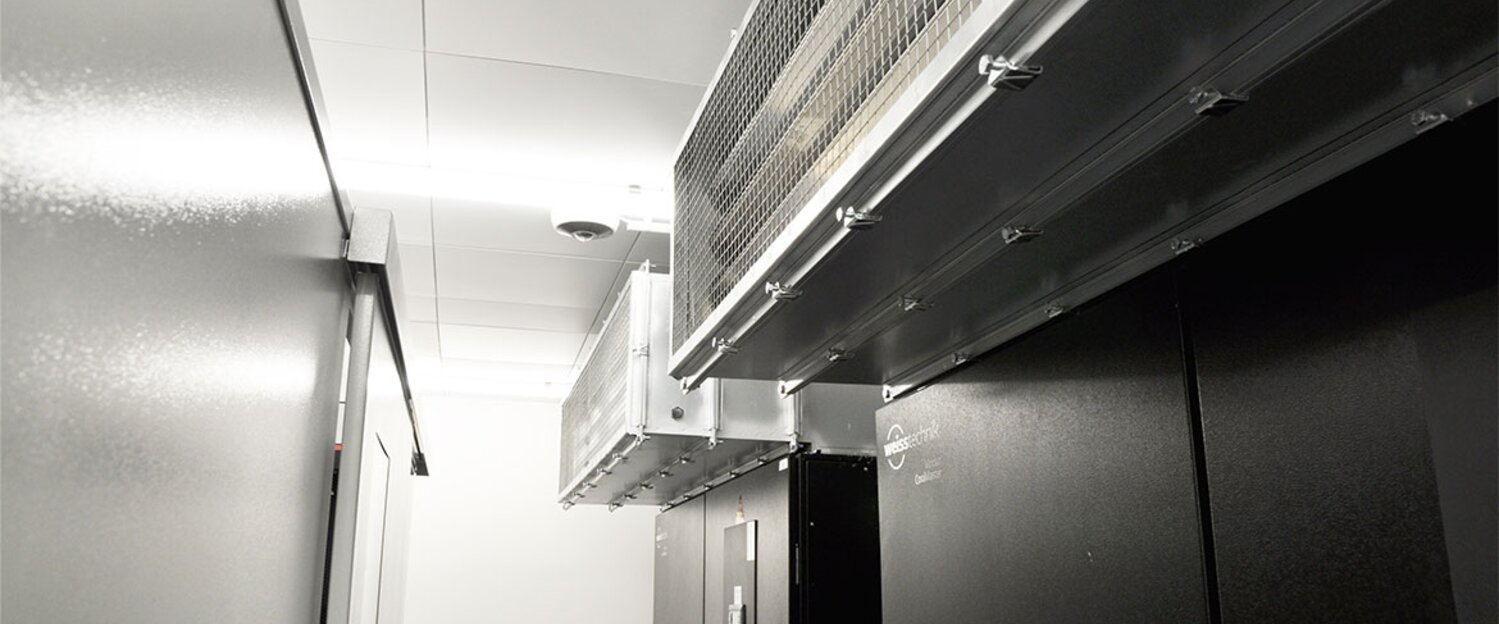Data centres require a lot of energy and have a correspondingly large carbon footprint. This can change in the future. The data centre operator Windcloud, in cooperation with the company Eschenburg EKK and the Dierck Group, has developed a revolutionary data centre that works with electricity from wind power and uses the waste heat for algae cultivation. The result is a neutral, ideally even positive climate balance. Weiss Technik supplied the air conditioning technology required for the highly innovative project.
Well-established partnership high in the north
When the start-up company Windcloud began planning the data centre, there were initially more questions than answers. However, it was clear that it should work sustainably, in accordance with the company's philosophy. Winfried Ritter, managing director and initiator, explains: "We wanted to develop a data centre that uses the climate advantages of our location in the north and sets new technological standards. That's why we were looking for partners who could support us and have the necessary know-how." Due to the positive experiences with past projects, the choice fell on the IT system house Dierck and the company Eschenburg EKK, which belongs to the Dierck Group.
Big thinking instead of selective optimisation
Since data centres have existed, their efficiency has been significantly increased. However, most innovations have only optimised an existing concept that has a fundamental problem: In all data centres, the waste heat is more or less blown out unused, which wastes around 95% of the energy used. The aim of the Windcloud project was to change this and develop a new concept. In view of the excellent wind and space conditions in Schleswig-Holstein, it was decided early on that the electricity should be produced sustainably by wind turbines. In order to find ideas and possibilities for using the waste heat, Windcloud organised a congress at which specialists from various sectors and disciplines were invited. Among them was an entrepreneur specialising in the cultivation of algae. After initial discussions, it quickly became clear that algae cultivation had a lot of potential for the project and the first plans began.
Innovation-proven location
The data centre was to be realised on a former Bundeswehr site. A location that already has a certain history of innovation - after all, one of the first CoolWall air conditioning systems from Weiss Technik was successfully installed here back in 2010. The conception and planning of the new data centre was driven by Stefan Micsek, head of the business unit RZ and IT infrastructure at the Dierck Group: "The project developed a very high dynamic, which was implemented positively in the team. This enabled us to react quickly and flexibly at any time and also to realise unconventional solutions in a direct way." For example, during the planning it had turned out that the exhaust air had the ideal temperature for algae cultivation. So a 240-square-metre greenhouse was placed on top of the data centre, into which the waste heat had to be conducted.
Saving the climate with algae
Algae are a kind of super biomass and can be used in many ways - in medical technology and the pharmaceutical industry, in the cosmetics sector and in the food industry. In addition, they can produce oil as an energy source without requiring arable land. As they grow, they extract carbon dioxide from the atmosphere, thereby purifying the air and counteracting the greenhouse effect. Until now, algae processed in Germany have mostly been imported from the Far East, which is harmful to the climate, but this is no longer necessary with locally produced algae. Another advantage only became clear during the development of the concept: the waste heat from the computing centre can be used for algae cultivation all year round. In winter, the algae can be perfectly tempered with the temperature of the exhaust air. But even in the summer, the constant waste heat of 35.9 °C ensures optimal growth conditions for the Spirulina and Chlorella algae used. Harvested algae can also be dried with the exhaust air before the air is blown out
Flexible air conditioning technology at the heart of the plant
In the search for a suitable partner for air-conditioning technology, Weiss Technik was chosen. As a long-standing innovation driver in the industry, the company stands for versatile and highly efficient solutions. One focus of development is in the area of direct free cooling. For Stephan Vogt, Managing Director of Eschenburg Elektro-Kälte-Klima GmbH, there was another important argument: "Even during the initial planning phase, we opted for a Weiss Technik unit. On the one hand, because they offer the required efficiency, reliability and operational safety. On the other hand, because it was important for us to have a highly flexible solution with which we could implement the short-term developments of the dynamic project at any time".
Direct free cooling ensures energy efficiency
The basis for the sustainable cycle of server cooling, greenhouse heating and algae drying is a high-performance air-conditioning system. To achieve maximum system efficiency, a Vindur® CoolMaster FC precision air-conditioning unit with direct free cooling was selected. These are directly connected to the outside air via their special housing design, so that they can directly utilise the advantages of di-rect free cooling. One success factor here is that the temperature at the site is on average almost 3 degrees cooler than in the metropolises where many data centres are located. Thanks to automatic control, the mechanical cooling is only switched on when necessary. Mario Schlotte, sales engineer at Weiss Technik, explains: "With our Vindur® CoolMaster FC air conditioning units, we have been achieving outstanding efficiency and reliability values and satisfied customers for many years. That's why we recommended the use of an appropriately designed unit."
Roll-out for further data centres
After the successful commissioning of the data centre in August 2020, Windcloud is planning further decentralised and wind-powered data centres. Winfried Ritter: "Digitalisation will continue to advance, and data centres will become increasingly important. We still have several bunkers at the site that are ideally suited for this. In addition, the concept can also be scaled for other locations worldwide. And with the successful team, we want to continue to move forward and make a lasting green change in the world of data centres."



